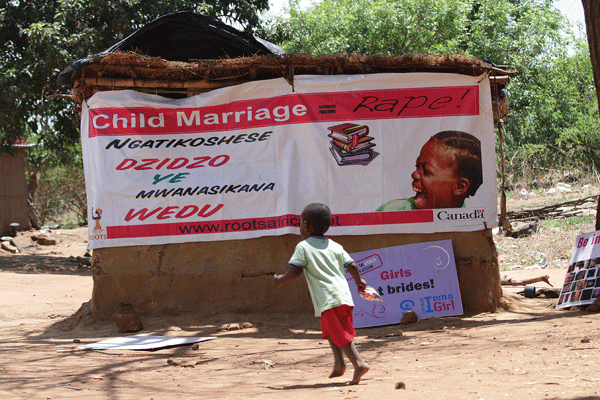
TRADITIONAL leaders want powers to prosecute child marriage offenders, arguing there was nothing peculiar about the request as “our forefathers also tried such cases”.
By NQOBANI NDLOVU
Chiefs currently do not have powers to prosecute child marriage offenders, a scenario they said was counter- productive as the practice was rampant in their areas of jurisdiction.
Chief Ngungubane, contributing to a report of the Thematic Committee on Gender and Development on early child marriages in the Senate on Wednesday, said chiefs would remain toothless bulldogs in trying to stop child marriages as long as they did not have powers to prosecute offenders.
“There is need for us to have a paradigm shift when we talk of child marriages and other laws. You know, the law says chiefs have no jurisdiction in all issues that are of a criminal nature. I am thinking of child marriages.
“There is need for this House to review the jurisdiction that you give to traditional leaders. They (chiefs) are like a toothless dog that will only bark and will not bite. I am challenging this House that if we are to address this issue of child marriages, we should give chiefs the jurisdiction to try cases involving child marriages,” he argued.
Reports of child marriages abound, especially in rural areas despite a January 2016 Constitutional Court (ConCourt) ruling outlawing the practice. The ConCourt ruled that section 22(1) of the Marriage Act that permitted children under the age of 18 to marry violated the Constitution.
Chief Ngungubane said the practice was, however, continuing, especially in rural areas, as offenders took advantage of the inability of traditional leaders to prosecute them.
- Chamisa under fire over US$120K donation
- Mavhunga puts DeMbare into Chibuku quarterfinals
- Pension funds bet on Cabora Bassa oilfields
- Councils defy govt fire tender directive
Keep Reading
“Madam President, if we come and say the case is of a criminal nature and we should not touch it, fine, but in a serious matter, are we addressing the issue? The answer is no. So, what I am trying to illustrate, Madam President, is that we need a paradigm shift to say that all issues that have a criminal nature, the chief should try them.”











